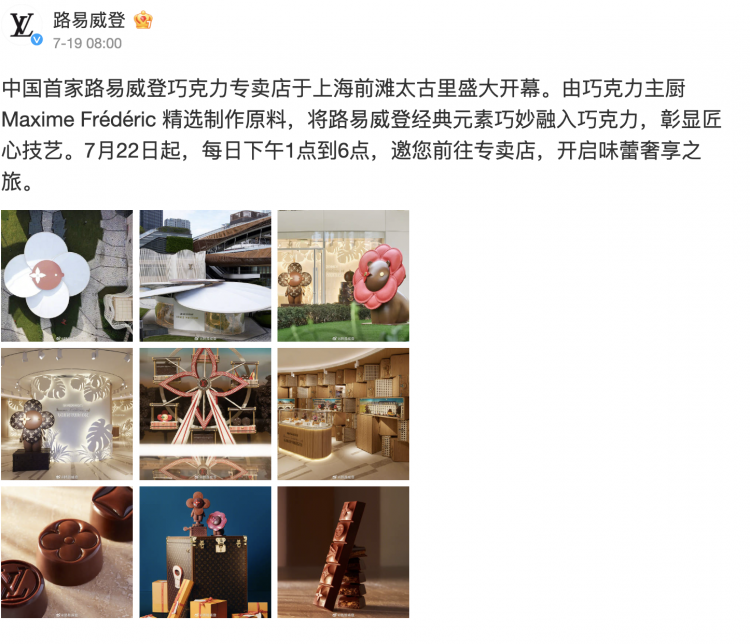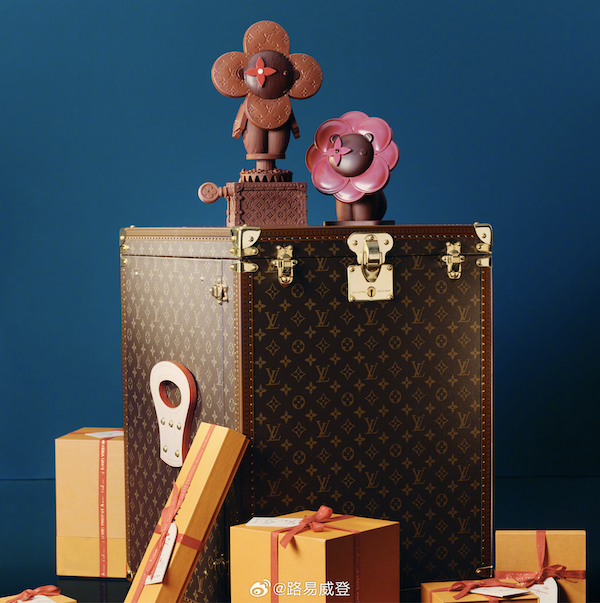Louis Vuitton (LV) has sparked a new trend in China with the opening of its first chocolate boutique in Shanghai, marking the brand's third such store globally after Paris and Singapore.
The boutique, launched on July 22nd, just before the Chinese Valentine's Day, offers chocolates starting at 240 RMB ($33.6) per box, creating a frenzy among luxury consumers. The chocolates have become so popular that securing a reservation has become increasingly difficult, with some consumers resorting to purchasing other LV products like wallets and jewelry to gain priority access.
This phenomenon reflects a broader trend where luxury brands are diversifying their offerings to tap into China's lucrative market. The boutique's success mirrors other luxury experiences in China, such as Prada's vegetable markets and Fendi's collaborations with local tea brands. As luxury brands deepen their engagement with Chinese consumers, these unique experiences offer a more accessible way for the masses to interact with high-end labels.
However, the surge in demand has also led to challenges. Reports of scalpers and long queues have surfaced, and LV's reservation system, which requires prior purchase history, has sparked controversy. According to China Securities Journal, LV's Shanghai boutique has seen an overwhelming number of reservations, with many consumers turning to scalpers to secure their purchases. The publication also notes that LV's reservation system requires prior purchase history, which has prompted some consumers to buy other LV products just to gain access to the chocolate.
This trend is happening against the backdrop of significant growth for luxury brands in China. LVMH, the parent company of Louis Vuitton, reported a 9% increase in global revenue for 2023, with Asia, excluding Japan, being the largest market. China's domestic luxury consumption has soared, doubling since 2019, despite a decline in tourist spending. To meet this growing demand, brands like Louis Vuitton and Christian Dior are planning to expand their presence in China with larger stores.
Louis Vuitton's chocolate boutique in Shanghai is more than just a novelty; it is a strategic move that aligns with the brand's broader efforts to cement its dominance in the Chinese market. As luxury consumption in China evolves, such initiatives may become increasingly common, further blurring the lines between luxury and everyday experiences.







